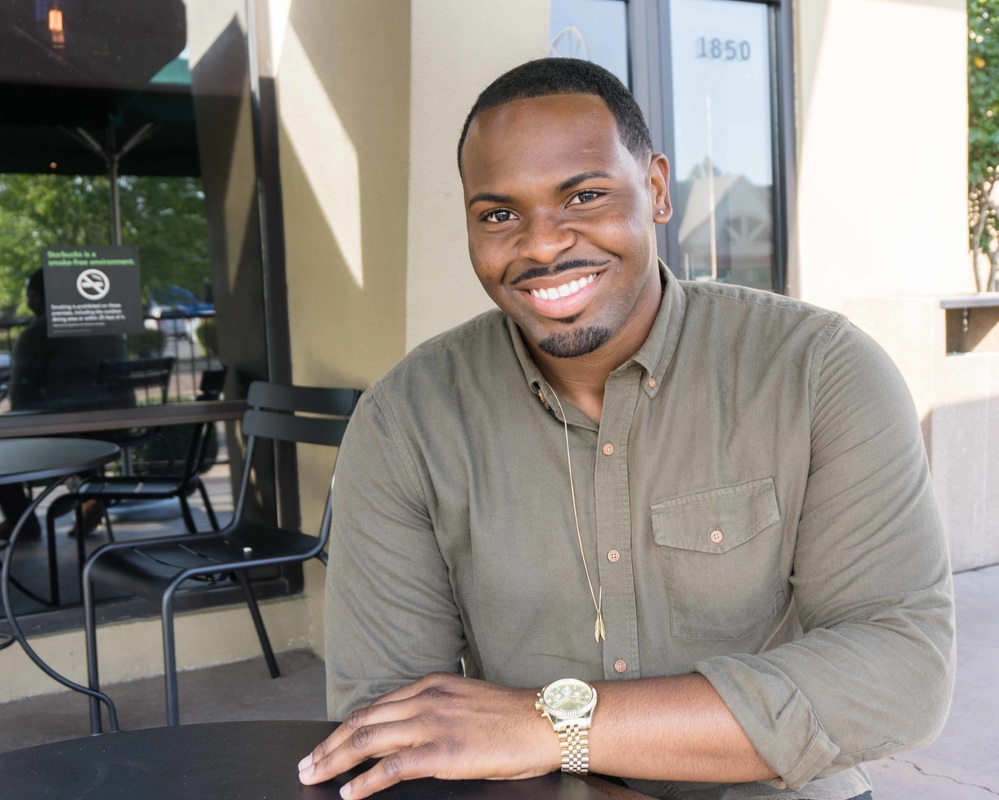“I’m from rural eastern North Carolina, and the closest hospital to my home was an hour away in either direction, so unfortunately I saw a lot of people get sick and die at an early age from things that were preventable. They didn’t have anyone showing them how to take care of themselves, telling them what to eat or not eat, or reminding them of healthy habits. Seeing how sick my family members were prompted me to want to do something in communities where the need is high but access is low.
“I intended to go into primary care but fell in love with obstetrics and gynecology during rotations in medical school. You’re there for some of the happiest times and the saddest moments, so you have to be very versatile. Not all childbirth goes well and not all gynecological procedures are positive; you have to deliver some pretty tough information sometimes. I feel like the experience in that area stretched me in ways nothing else could, so that’s what I’ve chosen to specialize in.
“I realized I was in the right profession while doing a rotation in internal medicine. I had a very combative patient who had come through the ER with fever, chills, night sweats, and a cough. He was spitting at the nurses, fighting the doctors, and not cooperating with anyone. When I went in the room to see him, I said, ‘I know you’re upset. So tell me what’s going on.’ And I sat and didn’t say a word. I just let him talk. No one had given him a chance to explain why he was so angry until then. He calmed down and talked to me, and that’s when I realized that taking care of a patient was more than meeting a physical need. There are mental, emotional, and spiritual needs that have to be considered as well. To be a good physician, your heart has to be involved. It takes loving what you’re doing and wanting the best for the patient, even when they’re not giving you their best version of themselves. It takes going the extra mile to reach them where they are.
“Memphis has become home to me. I love the patient population; I love the vibe, the community. I feel like I’m a part of it. The need is just as great in an urban area as it was in a rural area because, although you have hospitals available, the access is still limited. So either urban or rural, I want to go where people don’t have the access or the quality of care that they need. I want to be there for them.”
“I intended to go into primary care but fell in love with obstetrics and gynecology during rotations in medical school. You’re there for some of the happiest times and the saddest moments, so you have to be very versatile. Not all childbirth goes well and not all gynecological procedures are positive; you have to deliver some pretty tough information sometimes. I feel like the experience in that area stretched me in ways nothing else could, so that’s what I’ve chosen to specialize in.
“I realized I was in the right profession while doing a rotation in internal medicine. I had a very combative patient who had come through the ER with fever, chills, night sweats, and a cough. He was spitting at the nurses, fighting the doctors, and not cooperating with anyone. When I went in the room to see him, I said, ‘I know you’re upset. So tell me what’s going on.’ And I sat and didn’t say a word. I just let him talk. No one had given him a chance to explain why he was so angry until then. He calmed down and talked to me, and that’s when I realized that taking care of a patient was more than meeting a physical need. There are mental, emotional, and spiritual needs that have to be considered as well. To be a good physician, your heart has to be involved. It takes loving what you’re doing and wanting the best for the patient, even when they’re not giving you their best version of themselves. It takes going the extra mile to reach them where they are.
“Memphis has become home to me. I love the patient population; I love the vibe, the community. I feel like I’m a part of it. The need is just as great in an urban area as it was in a rural area because, although you have hospitals available, the access is still limited. So either urban or rural, I want to go where people don’t have the access or the quality of care that they need. I want to be there for them.”
Tyler J. Woodard will graduate from UT medical school in May 2017 and plans to do his residency in Obstetrics & Gynecology.

 RSS Feed
RSS Feed